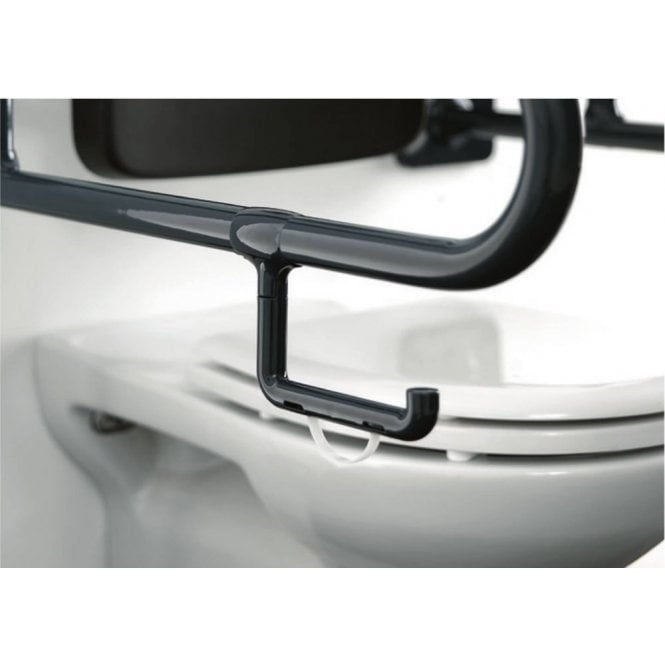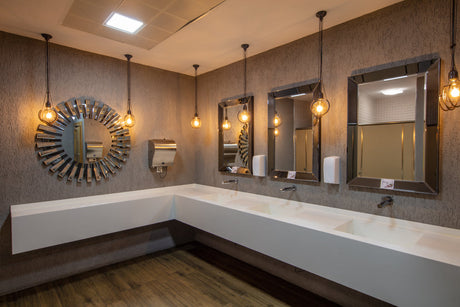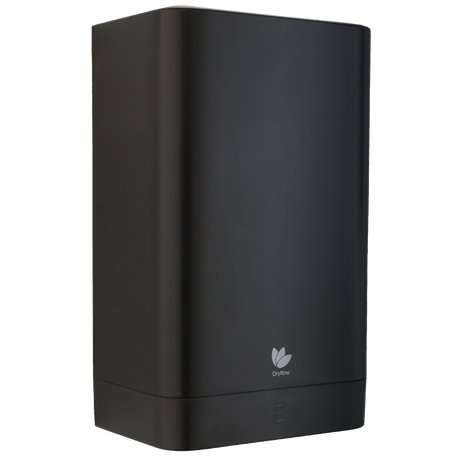Table of contents
- Make accessible toilets easy to locate
- Accessible toilets should be unisex to cater for Carers .
- Disabled toilets use a standard key that can be applied for.
- Accessible toilets need to free from hazards
- Standard accessible toilets are not suitable for all disabilities
Non-disabled people that lack close contact with disabled citizens might not know some basic concepts about wheelchair accessible toilets, which can be particularly useful if one is considering installing a toilet that is suitable for as many types of users as possible.
1. Make accessible toilets easy to locate
A non-disabled person knows for sure in which type of locations there will be a suitable WC. However, disabled people do not have this certainty unless it is a public or large building. People with disabilities must find it out directly on spot, by asking or looking for the signs (hoping they are well-marked…); as this route is not effective, it turns out being time-consuming and bothersome.
The other option is to research online. Several websites show where to find an accessible toilet in the UK, with filters and reviews, like the The Great British toilet Map , and also some apps have been created for this purpose, such as Flush Toilet Finder for iOS or Toilet Finder, this one available for Android too.
2. Accessible toilets should be unisex to cater for carers
Apart from being used by a person of either gender, the user with the disability may need assistance from a different-sex companion, therefore accessible washrooms are often unisex.
3. Disabled toilets use a standard key that can be applied for
Toilets for disabled people are wider and less visited, so they repeatedly end up being used improperly. To prevent this from happening, accessible toilets are frequently locked up, so one would have to ask for the key in order to enter. Nevertheless, over 9,000 toilets for disabled people have the same lock and users with disability can apply here for the official Radar NKS key to open any of these doors themselves whenever they need it.
It seems prudent to install a bolt or a multisensory sign at the door that will make others know that the accessible toilet is occupied, otherwise another person with that key could just enter there.

4. Accessible toilets need to be free from hazards
Everyone prefers a clean toilet, of course, also non-disabled users do. Nonetheless, older and disabled people cannot just pick a different toilet (because that one might be the only accessible WC in the block) or cannot do balancing acts to avoid wetness on the floor or on the toilet bowl.
5. Standard accessible toilets are not suitable for all disabilities
A toilet with extra space, adapted distances and additional grab rails is helpful for ambulant and disabled people who can move and transfer from a wheelchair. However, users with more restricted mobility, for example a quadriplegic, require more accessories, like a hoist or an adult sized changing bed. A changing places toilet (CP toilet) is the room where one will find these fittings and more space for up to two caretakers.
Although changing places toilets are being built in this kind of large buildings since 2009, as you can imagine a lot of people still lack of such a necessary facility in their local area, so when they go outside they take the unpleasant risk of changing someone on the floor (here it is one more example why accessible toilets must be clean).
To offer the best facilities for all kind of users, we must know the potential diversity of the visitors. People can have very different disabilities, from the quite uncommon and invisible diseases to the more complex ones or the combination of several illnesses. The more time, information and room we can take to meet this heterogeneity, the more equality we will bring into our society.
If you would like to know more about our varied range of commercial and domestic products for accessible areas , you can check our hand dryers for disabled toilets, our bathroom grab rails (also in Doc M packs ), sensor taps or automatic soap dispensers. Please, do not hesitate to ask us any doubt through our website or contact us by phone.





